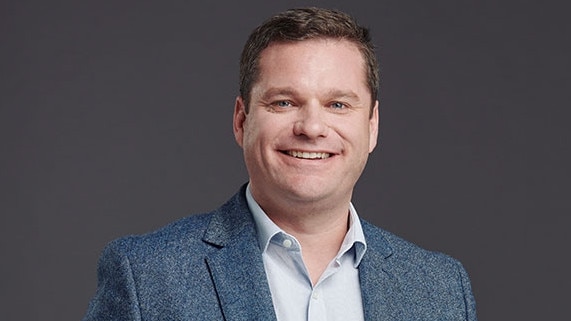Retirement money options multiply for seniors seeking savings
Seniors have plenty of options to save money and tax by watching their nest eggs closely during life after work.

Financial strategy number one for many Australian retirees over many years has been to stick with the safety of cash in the bank.
For starters, your money is protected by federal government guarantees, plus it’s generally easy to access and doesn’t deliver the gut-churning swings of other investments.
However, the downsides – until the past couple of years – have been low interest rates paid on your deposits, and the likelihood that retirees miss out much stronger gains and growth from broader investments in shares, property, infrastructure and overseas assets.
Today, good bank deposits are paying around 5 per cent interest, better than inflation’s 3.8 per cent, but cash returns have started heading south as banks prepare for looming cuts to official interest rates. More than 200 term deposit rates have been cut this month.
Financial specialists say keeping money in bank deposits makes sense for some retirees, particularly those with smaller savings, but for many there are other options that deliver more attractive tax savings, financial returns and long-term security.

Sadly for many older retirees, including those who did not benefit from compulsory superannuation’s introduction in the early 1990s, the age pension is all they receive – currently paying $1144.40 fortnightly for a single and $1725.20 for a couple – plus associated health care and other concessions.
New research by the Council of Australian Life Insurers (CALI) found more than half of Australians intend to claim the age pension at some point during their retirement, and only 15 per cent say they do not intend to claim any age pension.
CALI CEO Christine Cupitt said retirement could be a complex life stage, especially when mixed with feelings about financial insecurity.
“Moving from earning an income to drawing on investments and retirement savings, including those in bank deposits, can be a big shift both mentally and financially,” she said.
“Approaching retirement can make people think and worry about the risk of outliving their savings and becoming completely reliant on the age pension.”
Ms Cupitt said lifetime income products could give some people peace of mind, and everyone’s circumstances were different.
“Access to affordable financial advice is so important, to ensure people can make informed decisions about their future,” she said.
Here’s a guide to retirement income options.
CASH DEPOSITS
Marinis Financial Group CEO Theo Marinis said many retirees were “pretty happy” with bank deposits.
“They know there’s a $250,000 government guarantee, they feel comfortable with money in the bank,” he said.
“It depends on what it’s there for. Is it your buffer or is it part of your investment portfolio?”
Too many bank deposits can mean too much tax, although advisers often recommend people keep two or three years of income needs in the safety of cash, then invest the rest in a diversified portfolio of assets aimed at going the distance.
ACCOUNT BASED PENSIONS
These are pensions formed from rolling over your superannuation savings, and they come with the best tax benefits available to retirees: zero tax on income, capital gains and withdrawals for most people.
Tribeca Financial CEO Ryan Watson said the “very favourable” tax rules were why a majority of people switched their money from super to these products when retiring.
Typical superannuation accounts, known as accumulation accounts, still must pay tax of 15 per cent on earnings.
“In terms of an ideal place to hold your money in retirement, is really is hard to go past the account based pension environment,” Mr Watson said.

“The other question to consider is how should the money then be invested?
“A passive diversified investment portfolio across both growth and defensive assets is generally a good place to start, in consideration of your need for pension payments and the potential for lump sum withdrawals.”
Despite the bad press that superannuation policies and changes often receive, there are generous limits for retirees. If you retire after age 60 you can now put $1.9 million in an account based pension and pay zero tax on its earnings or capital gains.
“Load up super as much as you can,” Mr Marinis said.
“Try to keep yourself tax-free so you get to keep more of your returns.”
LEAVING IT IN SUPER
Some retirees don’t switching their super to an account based pension, and this can be costly.
It’s often because of a lack of understanding or advice, and retirees don’t realise that the tax-free status is only for their pension, not their existing superannuation account that still pays 15 per cent tax on investment earnings.
Mr Marinis said for someone with $100,000 in super, switching to an account based pension could deliver them an extra $900 annually.
“Why keep paying 15 per cent tax on earnings when you can start a pension and pay zero tax?” he said.
“You don’t need advice to do it. Just go to your super fund and say ‘I want to start an account based pension’.”
If you’re rich enough to have more than $1.9 million in superannuation savings, you can leave the rest in your existing super fund – at least for now, with the Albanese government planning higher taxes for super balances above $3 million.

SHARES
Many retirees have held direct shares for decades, and enjoy their continually-rising dividend payments, with the big four banks among the most popular choices.
Others hold shares within self-managed superannuation funds or other superannuation pensions, and get extra financial benefits from the 30c-in-the-dollar tax credits attached to most Australian company dividends.
This tax strategy supercharges income returns from shares, although it can always be changed by governments. However, that’s unlikely in the short term, because previous Labor plans to change the taxation of franking credits was seen as a key reason why they lost the 2019 federal election.
Shares have a lot more volatility than conservative investments such as cash, bonds and other fixed interest, so advisers generally do not recommend retirees hold 100 per cent of their wealth there.
PROPERTY
Many retirees are landlords, living off the rents they receive from tenants, although managing an investment property may be tricky if there is still a sizeable mortgage attached.
Other seniors store wealth in their own home, which is arguably the best tax-free investment that any retiree can have. It also doesn’t count in the Centrelink assets test.
However, your own home does not deliver income, Tribeca’s Mr Watson said.
“In retirement, generating an income stream is a key consideration when it comes to investing,” he said.
“Therefore, storing your wealth in your family home doesn’t help meet this key goal in retirement.
“You want your money to be invested in income-generating assets and have an element of it that is liquid, and can be accessed in lump sum in case of an emergency.”
However, Mr Marinis said retirees with enough wealth elsewhere could get bigger tax benefits if they “buy a better house”.
“If you have got excess money, you may as well live in a really nice house,” he said.
“Any gains you make on that house will be CGT-free.”
INSURANCE BONDS
Also called investment bonds, these are tax-paid investments that can be used strategically by retirees on higher incomes. They can offer tax, asset protection and estate planning benefits, and can invest your money across a wide range of assets.
“You can put excess money into the insurance bond so it’s only taxed at 30 rather than 34 per cent,” Mr Marinis said.
“If you pass away it goes to your estate tax-free.
“Whether it’s superannuation pension, investment account or an insurance bond, you can invest it identically. Put it in the correct structure to mitigate tax.”
INCOME FOR LIFE
Lifetime income products such as annuities and lifetime pensions give people a regular income in retirement, helping prevent people from running out of retirement savings, with only a portion assessable in Centrelink’s assets test.
They have surged in popularity recently, with independent research finding sales jumped 220 per cent last year to almost $1.5bn.
People previously avoided annuity products because many kept your money if you died early, but today’s products are more flexible, can revert to a spouse after you pass away, and can have a residual capital value that goes to your estate once you die.
Annuity provider Challenger’s head of retirement income, Aaron Minney, said lifetime annuities worked differently to other investments because they converted capital to income.

“There are no explicit fees,” he said. “The costs are rolled up into the income payments provided.
“As at 23 September, a 65-year-old male would get paid $4,938 in the first year for a $100,000 investment. This income will increase in line with the CPI every year and they have access to some of the capital up to age 84, and a full death benefit of $100,000 up to age 74.”
Mr Minney said having an annuity was only part of the retirement puzzle. “We see advisers and retirees typically allocating 20-30 per cent of their capital to a product like an inflation-linked, lifetime annuity,” he said.
“Knowing you have an income for life gives retirees the confidence to enjoy their lifestyle in early years of retirement, while they are well enough to have experiences like travel. Without the security of a lifetime income stream, we often see retirees underspending, no matter the size of their super balance, due to the fear of running out.”
TERM ANNUITIES
Term annuities provide guaranteed income for a pre-agreed term such as one, three or 10 years. There are a range of investment options available.
“Term annuities can be used by anyone to help manage finances over a set period,” Mr Minney said.
Mr Watson said annuities “certainly have a time and place” depending on a person’s risk appetite and desire for certainty of investment returns.
Mr Marinis said annuities had received a lot of recent media coverage but he did not use them for clients regularly, usually only for “really, really conservative people” or when it could improve a person’s Centrelink position.
“They have a place, but it’s not as much as annuity providers would tell you,” he said.






To join the conversation, please log in. Don't have an account? Register
Join the conversation, you are commenting as Logout